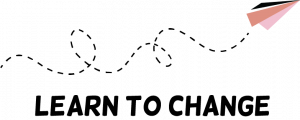
Our Erasmus+ funded Learn to Change project focuses on co-creation of digital storytelling in collaboration with European higher education students and teachers and tourism and services industry partners.
We co-create digital storytelling to promote off-the-beaten track destinations and their sustainable local services. According to feedback from our stakeholders, there is a clear need for collaborative digital storytelling for sustainable change and the stakeholders share a passion for advancing sustainable goals.
International collaboration and co-creation online
To get us started with such big issues as sustainable living, travel, and consumption on one hand, and multi-stakeholder collaboration and multidisciplinary and multicultural co-creation on the other, we need to engage in active grass-root interaction between European universities, businesses, and non-profit organizations. Enacting change is a collaborative effort.
During the Learn to Change project in 2021-2023, we organize a series of international stakeholder co-creation workshops online. The workshops are aimed at fostering students’, teachers’ and industry partners’ competencies in co-creation and collaboration, digital storytelling, and sustainable travel, living, and consumption.
On 15 October 2021, we held our first international stakeholder co-creation workshop online, focusing on the needs, challenges, and benefits of purpose-driven and long-term multi-stakeholder collaboration. The workshop brought together more than 50 students, teachers and industry partners from around Europe to discuss collaboration needs and to share ideas about local, regional, national and international sustainability goals.
Successes and challenges of collaborative digital storytelling
In the workshop, Saxion University of Applied Sciences was in charge of presenting a best practice in co-creating DST for purposes of community building. They shared an impressive case example about the HerMálaga project carried out by Saxion and TUI Care Foundation, focused on creating and sharing digital stories of women entrepreneurs in the Málaga region with the purpose of empowering the women and drawing attention to the untapped potential of getting to know a destination through its diverse local communities. The workshop participants were greatly inspired by the case.
During the workshop, we gathered ideas on the following topics: 1) sustainability goals; 2) digital storytelling solutions; 3) collaboration benefits, challenges, needs, and platforms. Participants appreciated the opportunity of having different stakeholder groups engage in sustainability projects together and felt that multidisciplinary project teams bring added value to collaboration. In addition, they expressed the need for communities and students to develop sustained digital interaction and collaboration to reach long-term sustainability goals.
In terms of benefits and successes, digital storytelling was regarded as an ideal solution for developing sustainable living and especially useful for promoting off-the-beaten track destinations and stories related to local people, local cultural heritage, and small companies and service providers.
As challenges, participants mentioned difficulties of finding resources for communication, value deliberation, negotiation about cultural differences, building shared purpose, and generating a genuine feeling of trust and joint commitment between people with different viewpoints and cultural and disciplinary backgrounds.
University-industry collaboration as key to success
The industry partners participating in the workshop regarded higher education students and their role as digital storytellers as key to sustainable change. If students bring their digital skills, transformed expectations, and generational needs and emotions to these stories, they have a real potential to act as change drivers, first catering to younger generations, but also leading older generations towards changing their attitudes and behavior.
All in all, we have had 20 associated industry partners involved in our Lern to Change project activities so far, including: ACICB-Associação Comercial e Empresarial da Beira Baixa; AEBB – Associação Empresarial da Beira Baixa; Actus Agro; ResiRest bv; Tours that Matter; Rokua UNESCO Global Geopark; Naturtejo, Empresa de Turismo EIM; Município de Castelo Branco; Castle of Pécsvárad; Theatre center Klub Letka; ADRACES; Zwack Museum Unicum Plc.; Hailuoto municipality; SMAL – The Association of Finnish Travel Industry; Kemenes Volcano Park; Parque do Barrocal; Town of Loviisa; Tuhannen Tuskan Cafe; and L&C Fellmanni Loviisa; and Video Agency Ikimedia.
The Erasmus+ KA project Learn to Change – Collaborative Digital Storytelling for Sustainable Change is coordinated by Haaga-Helia University of Applied Sciences and implemented in collaboration with Budapest Business School, Polytechnic Institute of Castelo Branco, University of Chemistry and Technology in Prague, and Saxion University of Applied Sciences.

